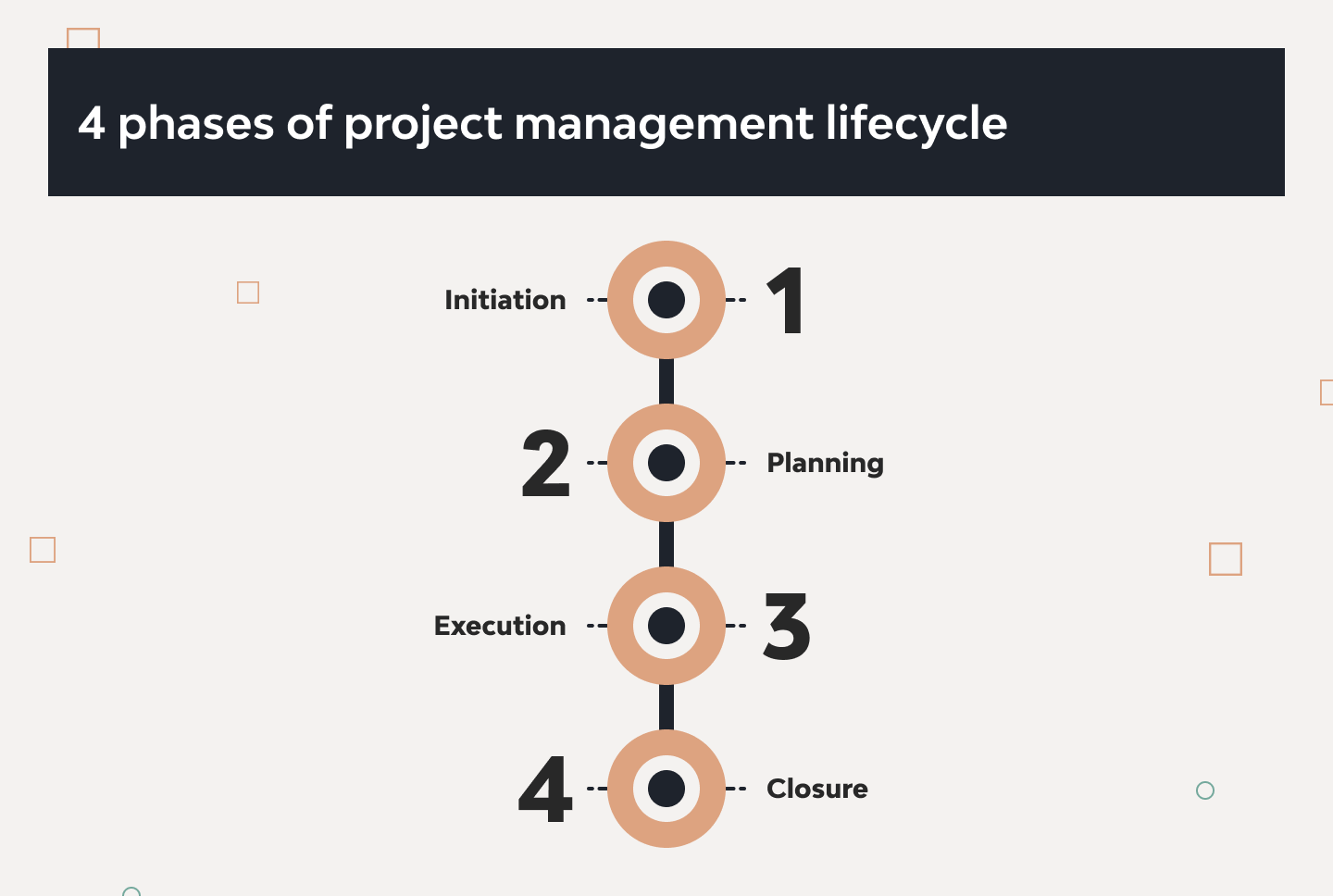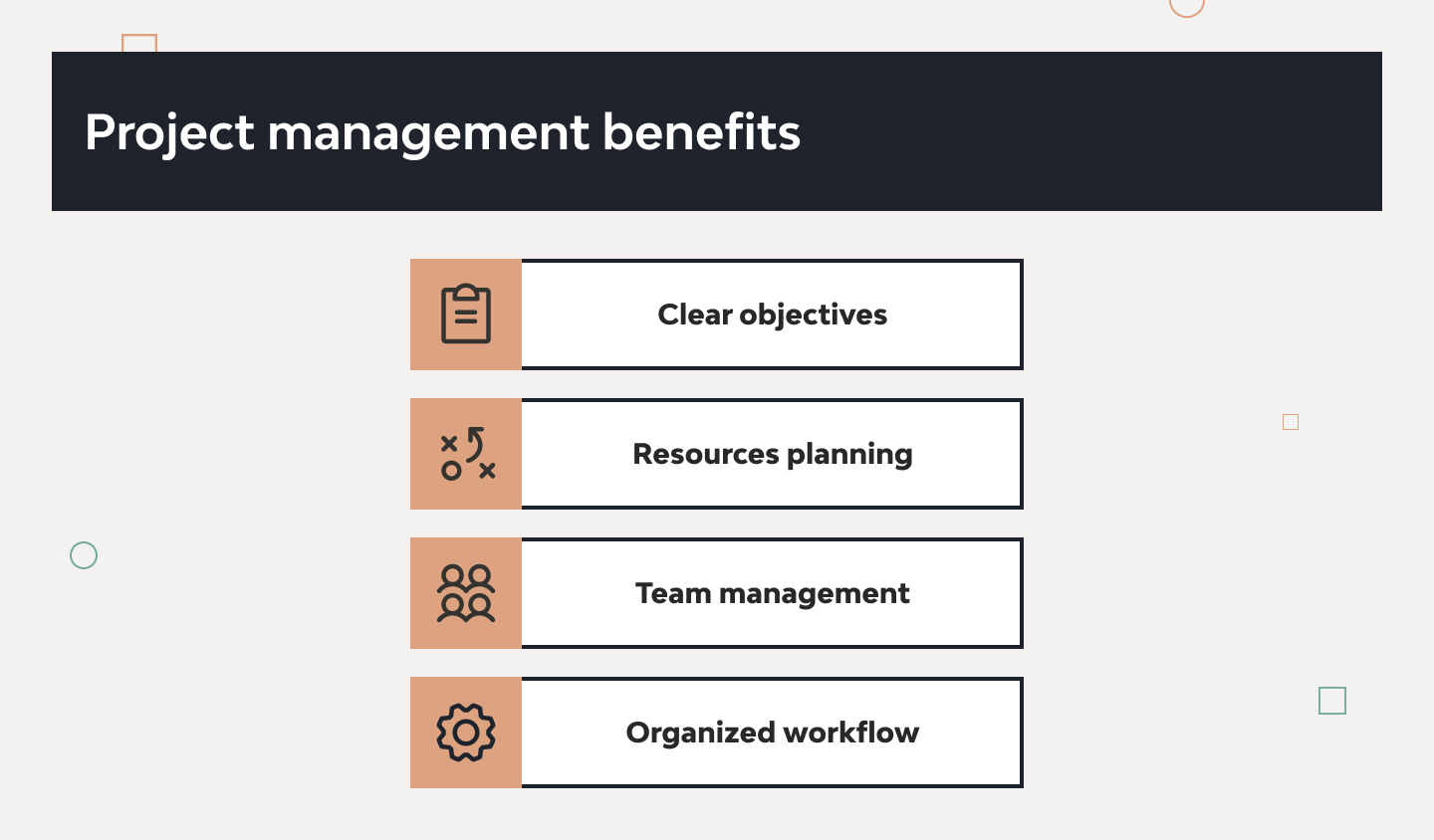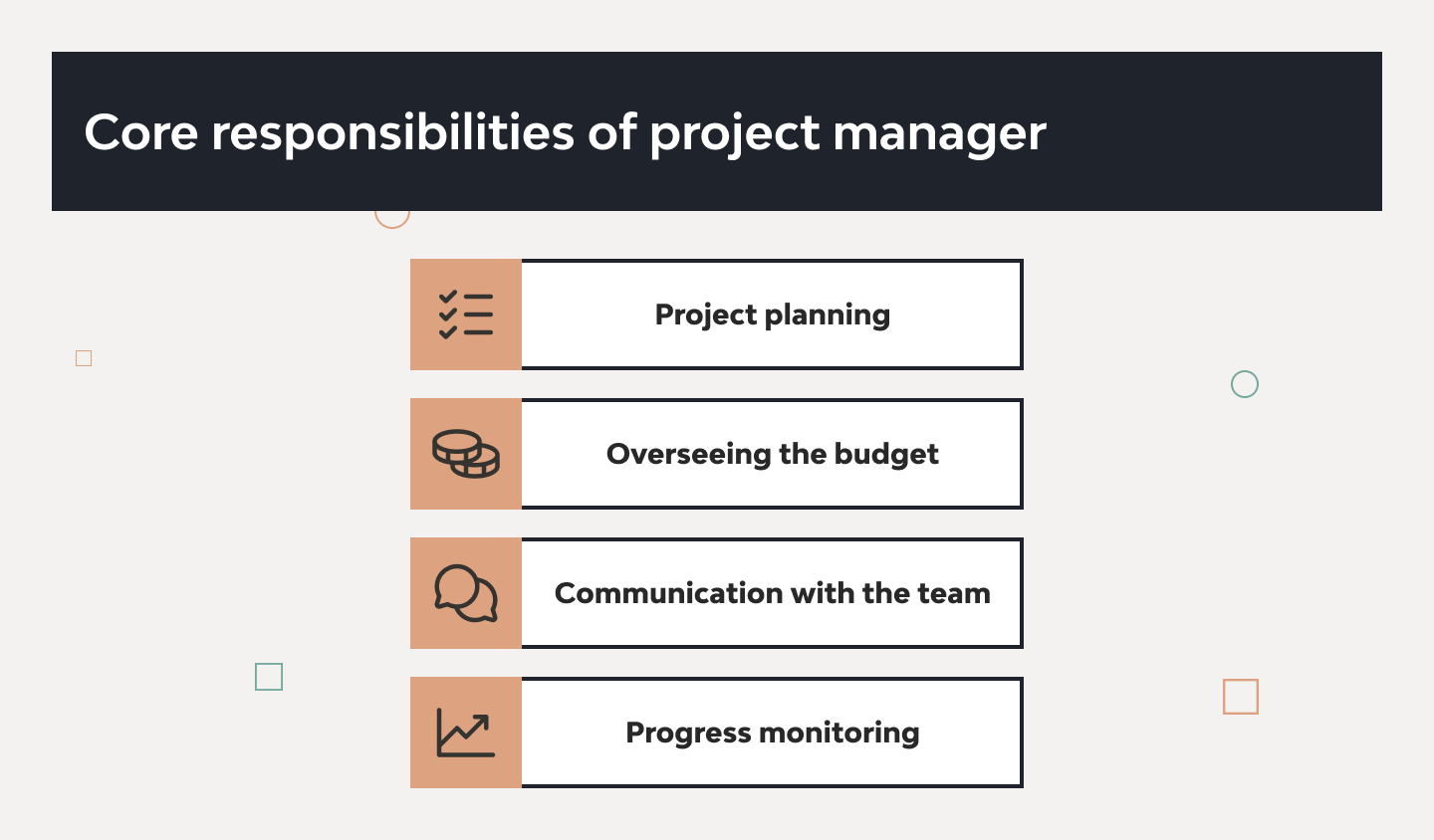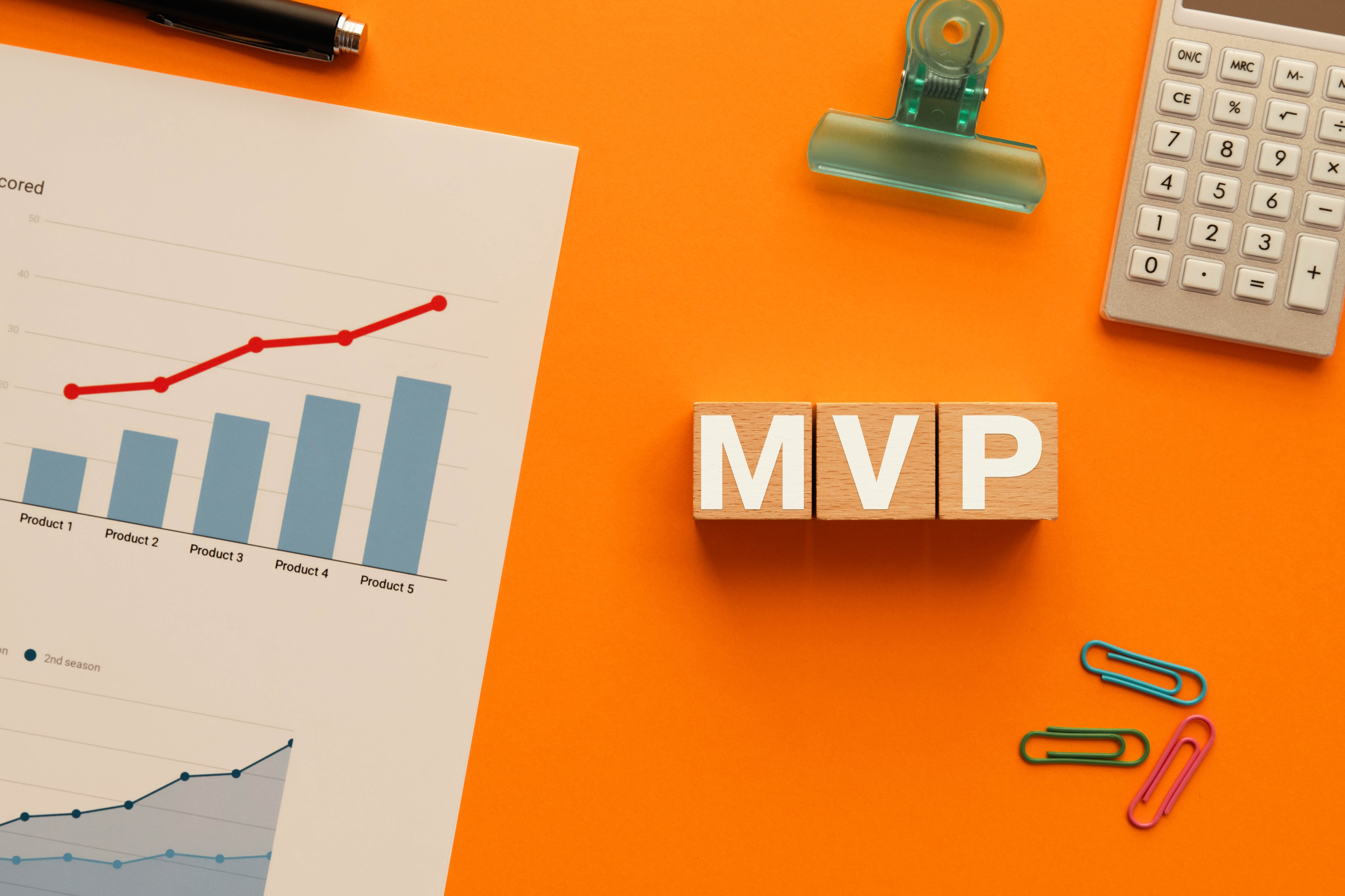Vital Role of Project Management Matters in Software Development

Project management is the core of building a great product, where everyone on the team shares the same vision and works on the same product goal at a certain time point.
Without project management, product development will turn into a random sequence of tasks with blurred outcomes and deadlines. This is not what each project founder expects to get, isn’t it? In this blog post, we will describe why project management is important and what roles project manager performs at each stage of the product development lifecycle.
Why is project management important?
Let’s start with the definition of project management. The main goal of software project management is to align teams on development requirements, tasks, and deliverables and regularly monitor the performance of the team to ensure that everything goes according to the product development plan.
The software development process usually consists of the following stages: planning, analysis, design, development, testing, implementation, and maintenance. The role of the project manager is to ensure that the team aligns with the scope of work, the budget, deliverables, and deadlines at each stage of the software development lifecycle.
Without proper project management, the teams will work in silos, with everyone focused on their own tasks without seeing the general picture and the overall progress of different departments. This will result in various blockers that, when not quickly addressed, will lead to budget overruns and missed deadlines. The project manager regularly tracks the progress of your project, organizes check-ins, and handles roadblocks that may appear during the development process.
In addition, project management is not only about controlling deadlines and creating meeting agendas. One of the core responsibilities of the project manager is to manage expectations with the stakeholders by controlling and documenting any changes. Documentation and communication are key elements in the software development process. The role of a project manager is to minimize risks by tracking changes, ensuring that the project is on track, and keeping the stakeholders in the loop.
What does a project manager do? Key Roles of a Project Manager in Each Development Stage
A project management lifecycle usually consists of the following phases: initiation, planning, execution, project monitoring, and closure.
Let’s take a closer look and define the core responsibilities of the project manager at each of them.
Project initiation
This stage is also called the negotiation stage. A stakeholder comes with a general idea, and the goal of initiation is to turn this idea into an actionable business plan. During project initiation, a team defines the main purpose of the project, potential obstacles, general project scope, budget, and project duration.
The main responsibilities of a project manager at this stage are:
- Learn about the project’s goals, expectations, and objectives
- Suggest the best SDLM that suits the project goals and client needs
- Discuss any blocks or constraints that may appear during the development process
Here is what the client usually gets at the end of this stage:
- Product vision, needs, and business goals
- The list of possible risks to take into account
- Approximate project budget and timeline
Project planning
This stage is also called the discovery stage. The main purpose of the discovery stage is to сreate project requirements, create detailed planning of the first iteration and release, and estimate the project duration and costs. Here is how the project manager is involved during this stage:
- Plans and organizes meetings with the client
- Creates a project roadmap and all the necessary documentation for the discovery phase
- Provides a detailed project estimate
- Breaks up the development process into sprints with project milestones
- Creates a list of stakeholders
- Defines the roles of the team members
Here is what the client usually gets after the project planning stage:
- A project charter document that includes all the necessary information about the project, such as the project roadmap, detailed estimate, project milestones, and the list of stakeholders.
Project development
When all the preparations are completed, the development process begins. Here, the project manager fully enters the game and controls all the processes to ensure that the whole team aligns with the project roadmap. Here are the main tasks the project manager performs during the software development stage:
- Monitors the software development process and controls if each team member completes their task on time
- Mitigates any blockers that may appear during the process
- Organizes team meetings to ensure everyone is on track
- Updates project backlog
- Reports the progress of the project to stakeholders
Project monitoring and control
This phase overlaps with the project development phase and usually runs concurrently. Apart from what was mentioned above, during this stage, the project manager also monitors if the team meets KPIs and regularly reviews and updates the project management plan if there are any changes in the project scope
Project closing
After the project is completed, it’s time to crunch the numbers and present the deliverables. During the project closure, the team organizes retrospective meetings to summarize the overall work process and lessons learned. Here, the project manager does the following:
- Compares project deliverables against the initial goals
- Gives feedback to team members about their work process
- Creates reports on KPIs and results
Benefits Of Project Management
As a product founder, you have a lot on your plate: business vision, marketing, finance, documentation – the list can be endless here. Investing in project management will let you hand over control to a qualified person and regularly get updates on your project progress without micromanaging. Here are other benefits you get with project management.
Improved collaboration between teams
A project manager is one who controls the chaos and makes everyone on the team work as a unit. The job of a project manager is to make sure everyone in the team is working with the same goal in mind in a connected environment. The project manager is like an orchestra conductor who provides direction for the team and monitors everyone’s role. As a project founder, you can rest assured that everyone on the team is making an impact.
Setting clear objections and KPIs
You may have a business idea in mind, but without clear KPIs and smart goals, bringing these ideas to life will turn into a never-ending process. What will be the outcome? Wasted time and budget and ruined expectations. The role of the project manager is to plan the product development in detail and allocate resources, taking into account all the possible risks.
Optimized budget
A project manager forms a team depending on your requirements, deadline, and budget. If you are pressed for time, a project manager will choose a suitable type of team and development model to make sure you will finish the project in time without running out of the budget.
Our experience: why you need PM (project development process at Djangostars)
At Django Stars, we cover the entire digital product development lifecycle from the discovery phase, where we help you validate your idea to scaling and maintenance.
When it comes to project management, we start by outlining the communication strategy to use during the whole software development cycle. The communication strategy includes information about how, where, when, and in what format to communicate with the development team. These are the steps we take to create a convenient and effective project communication plan.
Ensure that each team member is aware of project objectives
We ensure that each team member knows the ins and outs of the project they work with. During this stage, project managers communicate with the team on a regular basis to describe more information about the project, target audience, market, and features.
Decide on the communication tools
Our project managers ensure that everyone on the team uses the same messengers, planning tools, and communication systems. We create a unified communication system so everyone stays on the same page.
Set timelines and deadlines for each development stage
At this stage, project managers set and synchronize project timelines with the team’s schedule, appoint executors and supervisors, and define rthe esponsibilities of each team member.
Create a communication plan with stakeholders
Communication tools of stakeholders and developers may vary, and it’s the job of the project manager to clearly define tools and schedules to report project results to stakeholders.
Conclusion
The right people in the right place are the core of a successful product. A good project manager is a person who understands your project goals and knows how to unite the team around them. Project management is a pillar of the software development process that holds all the processes together, so you may rest assured everything is under control.
Interested in how project management can streamline your software development? Schedule a free consultation with DjangoStars today.











